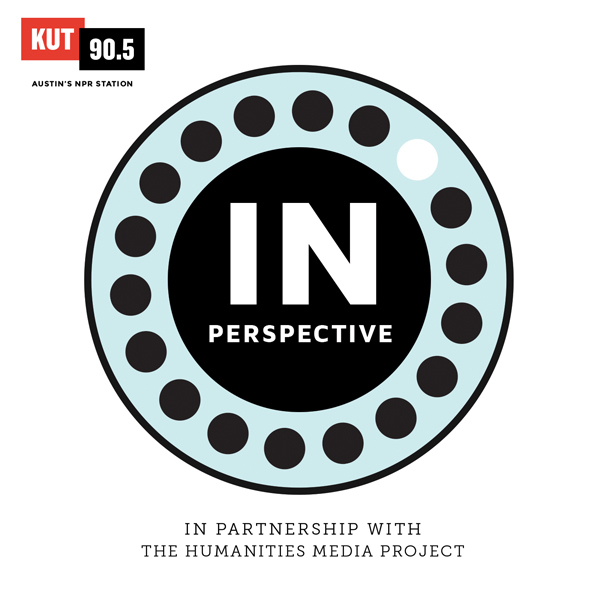This month on In Perspective, our roundtable participants discuss public memory in relation to grief, war, and memorials such as the National September 11 Memorial & Museum. Two of our guests represent that museum, which commemorates the September 11 attacks of 2001 and the World Trade Center bombing of 1993. Also joining us are two distinguished faculty from The University of Texas at Austin and by a call-in guest who is an assistant professor and filmmaker from Northwestern University.
The Discussion
Kyle Henry, MFA, is an assistant professor at Northwestern University. He is the editor of Heather Courtney’s 2012 film, Where Soldiers Come From, among many others. His latest documentary project, Half-Life of War (2014), explores war memorials and asks the question: Do we memorialize wars to remember, or do we construct monuments and memorials so that we can forget? In this discussion, Henry describes how he works to distill emotional realities through filmmaking in order to get at larger truths.
Clifford Chanin, director of education at the National September 11 Memorial & Museum, discusses the significance of technology to how September 11th was experienced and how it is remembered in the museum. He addresses the question of whether or not memorials have particular life spans, and explains the dramatic change in the nature of memorials over the past several decades.
Jenny Pachucki, oral historian and assistant curator at the National September 11 Memorial & Museum, shares what it means to speak about tragic events and the value of listening to each other’s recollections of where they were during historical moments. She explains that the exhibits bring together a vast array of remembrances and celebrate the victims’ lives, rather than attend only to their tragic passing.
Richard Flores, Ph.D., is a professor of anthropology and Mexican American studies at The University of Texas at Austin. He has written extensively on the topic of public memory, particularly in relation to Texas history and the Alamo. He helps frame the discussion of public memory and history with reference to the particular purposes served by myth-making and memorials. He explains how the distillation of events and lives toward the symbolic might also silence the voices of veterans and gloss over ongoing conflicts.
Tom Palaima, Ph.D., joins us from the department of classics at The University of Texas at Austin. He is a MacArthur fellow who focuses on Aegean prehistory and early Greek language and culture. He offers examples from Greek antiquity to give context to the discussion of early war memorials in the form of songs and epics. Palaima categorizes memorials as one of two varieties: those created to benefit those affected by the war, such as veterans and their families; and those created to benefit the state and national identity.
What’s your perspective?
These In Perspective participants together question how we deal with the trauma of terrorism and war, how we might mourn collectively, and why we build public memorials. They seek to understand and to teach an understanding of public memory and the human costs of war. At the Texas Humanities Project, we hope that this engagement with war and public memory from a variety of points of view in the humanities will spark thoughtful discussion among listeners about the impacts of memory and memorials in your lives.
Check back this time next month for our third In Perspective roundtable.





